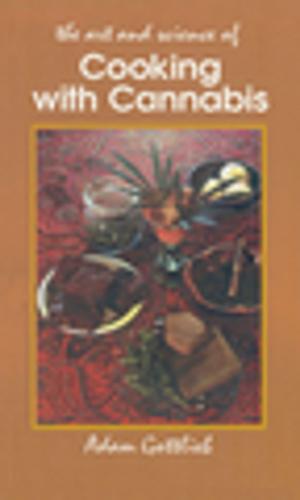Question Authority; Think for Yourself
Nonfiction, Health & Well Being, Psychology, Social Psychology| Author: | Beverly A. Potter, Ph.D., Mark James Estren, Ph.D. | ISBN: | 9781579511630 |
| Publisher: | Ronin Publishing | Publication: | September 11, 2012 |
| Imprint: | Ronin Publishing | Language: | English |
| Author: | Beverly A. Potter, Ph.D., Mark James Estren, Ph.D. |
| ISBN: | 9781579511630 |
| Publisher: | Ronin Publishing |
| Publication: | September 11, 2012 |
| Imprint: | Ronin Publishing |
| Language: | English |
We have freedom of speech but we’re afraid to speak. Our lives have become subjected to PC tyranny-a constant fear of offending” someone. We think that we are independent and that it is the other guy who is influenced, brainwashed, duped, persuaded. We feel like we think for ourselves. How can we feel” otherwise? There’s no way to know because countless influences and interactions have molded us.
We’re members of various groups-circles of friends, family, professional groups, hobby group, and workplace groups. Groups have a way of developing a view that it imposes with a kind of group-think. We want to belong, to be liked and included so go along and get along. We don’t make waves by questioning. If we have a different view, we keep it to ourselves. Why rock the boat?
Thinking for yourself is not so easy. When encountering an argument to a long held opinion or a wild idea, we use critical thinking to evaluate it, as we were taught to do in school. The problem is that critical thinking is critical. It focuses our thinking on the negative-what doesn’t work, what’s wrong with the idea-and encourages my-side thinking where we evaluate evidence in a way that favors our beliefs and entraps us into closed-mindedness. Thinking for yourself requires open-mindedness. Open-mindedness is being receptive and, when the issue is important, calls for actively searching for evidence against your beliefs.
Thinking is not driven by answers but by questions. Every intellectual field is born out of a cluster of questions to which answers are needed. Had no questions been asked by those who laid the foundation for a field - for example, Physics or Biology - the field would never have been developed.
We define tasks, express problems and delineate issues with questions. Answers signal an end point and stop thought, except when an answer generates a further question.
Timothy Leary said, ”to think for yourself you must question authority”. To think, you must question. To think through or rethink anything, one must ask questions that stimulate thought. The quality of your questions determines the quality of your thinking.
Thinking begins within some content when questions are generated. No questions equals no understanding. To engage in thinking through your content you must stimulate your thinking with questions that lead to further questions.
Our own opinions is one authority we should frequently question. Times change. We change. Perspectives and values change. Book explores how opinions and values we held in the past need periodic evaluation and challenge. Independent thinkers evolve and need to shed the shackles of old views and opinions.
Ridicule is the strongest weapon for pressing us to conform. It is a kind of bait that if you go for it will entrap you in an argument you can’t win and leave you looking ridiculous and deflated. Question Authority; Think for Yourself offers techniques, with examples, of how to deflect attacks, side-tracks, and put-downs.
If you’ve bitten your tongue and later wished you’d spoken up and not been cowed into silence by a mocking co-worker when you revealed a politically incorrect” viewpoint, you’ll find much of interest in Question Authority; Think for Yourself .
We have freedom of speech but we’re afraid to speak. Our lives have become subjected to PC tyranny-a constant fear of offending” someone. We think that we are independent and that it is the other guy who is influenced, brainwashed, duped, persuaded. We feel like we think for ourselves. How can we feel” otherwise? There’s no way to know because countless influences and interactions have molded us.
We’re members of various groups-circles of friends, family, professional groups, hobby group, and workplace groups. Groups have a way of developing a view that it imposes with a kind of group-think. We want to belong, to be liked and included so go along and get along. We don’t make waves by questioning. If we have a different view, we keep it to ourselves. Why rock the boat?
Thinking for yourself is not so easy. When encountering an argument to a long held opinion or a wild idea, we use critical thinking to evaluate it, as we were taught to do in school. The problem is that critical thinking is critical. It focuses our thinking on the negative-what doesn’t work, what’s wrong with the idea-and encourages my-side thinking where we evaluate evidence in a way that favors our beliefs and entraps us into closed-mindedness. Thinking for yourself requires open-mindedness. Open-mindedness is being receptive and, when the issue is important, calls for actively searching for evidence against your beliefs.
Thinking is not driven by answers but by questions. Every intellectual field is born out of a cluster of questions to which answers are needed. Had no questions been asked by those who laid the foundation for a field - for example, Physics or Biology - the field would never have been developed.
We define tasks, express problems and delineate issues with questions. Answers signal an end point and stop thought, except when an answer generates a further question.
Timothy Leary said, ”to think for yourself you must question authority”. To think, you must question. To think through or rethink anything, one must ask questions that stimulate thought. The quality of your questions determines the quality of your thinking.
Thinking begins within some content when questions are generated. No questions equals no understanding. To engage in thinking through your content you must stimulate your thinking with questions that lead to further questions.
Our own opinions is one authority we should frequently question. Times change. We change. Perspectives and values change. Book explores how opinions and values we held in the past need periodic evaluation and challenge. Independent thinkers evolve and need to shed the shackles of old views and opinions.
Ridicule is the strongest weapon for pressing us to conform. It is a kind of bait that if you go for it will entrap you in an argument you can’t win and leave you looking ridiculous and deflated. Question Authority; Think for Yourself offers techniques, with examples, of how to deflect attacks, side-tracks, and put-downs.
If you’ve bitten your tongue and later wished you’d spoken up and not been cowed into silence by a mocking co-worker when you revealed a politically incorrect” viewpoint, you’ll find much of interest in Question Authority; Think for Yourself .















